
Link and Loop.


The Path to Resilience:
2021-2022
Circular Supply Chain
Outlook for Taiwan and Europe
Circular Supply Chain
The term, "Circular Supply Chain", refers to an economic system in which products and resources can be continuously recycled to maximize their utilization value. The specific approach is to redefine the tasks of each role in supply chains and transform the waste from production and consumption into materials or products with market value again. A sound global circular supply chain depends on the joint efforts of governments, brands, suppliers, consumers, and nonprofit organizations.

Demand for PET
The polyester raw material, "polyethylene terephthalate (PET) ", is widely used in the production of plastic containers and textile garments. According to BNEF's long-term forecast, approximately 75% of materials currently come from the mining of petrochemical materials, and 25% from recycled materials (rPET). With recycled materials gradually replacing virgin materials, the market share of rPET is expected to reach more than 80% in 2050.
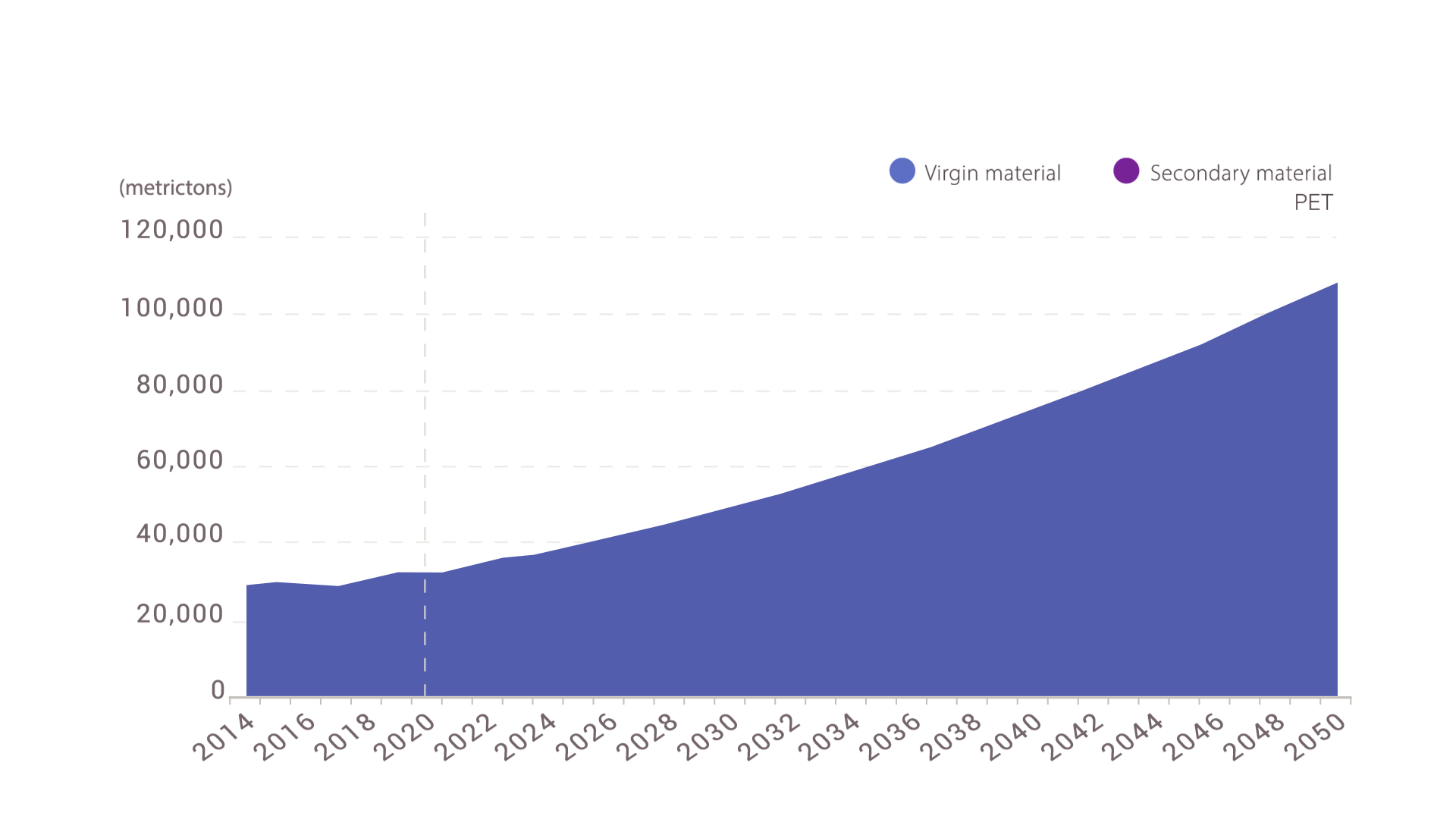

Demand for Aluminum
Aluminum alloy is an important industrial raw material given its high strength, high quality, and lightweight properties. It is used in various vehicles and electronic products. Because of its excellent ductility, it can also be used for packaging. Although 68% aluminum is currently sourced from mining and 32% from recycled materials, according to BNEF, it is expected that the market share of recycled aluminum will exceed that of virgin aluminum in 2050.
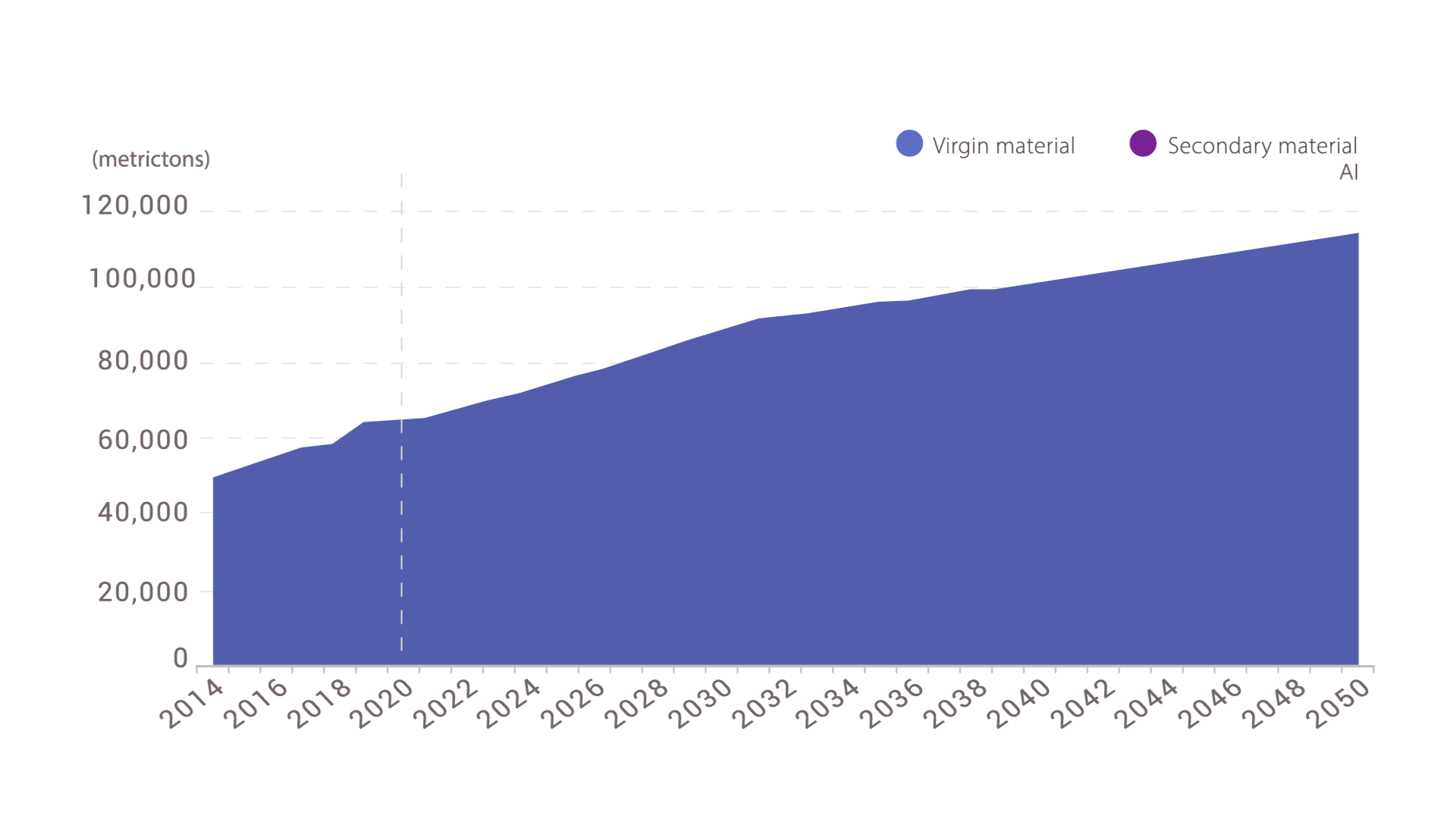
Carbon Reduction
The circular economy advocates the use of recycled materials and circular product design, which makes a positive contribution to reduce GHG emissions over the product life cycle. Based on cost analyses, if recycled materials are used in overall supply chains, the average cost of carbon reduction per ton is less than 10 EUROs according to the World Economic Forum. BNEF’s data on carbon reduction suggest that replacing virgin PET with recycled PET can reduce GHG emissions by 53%; and replacing virgin aluminum with recycled aluminum can reduce GHG emissions by 90%.

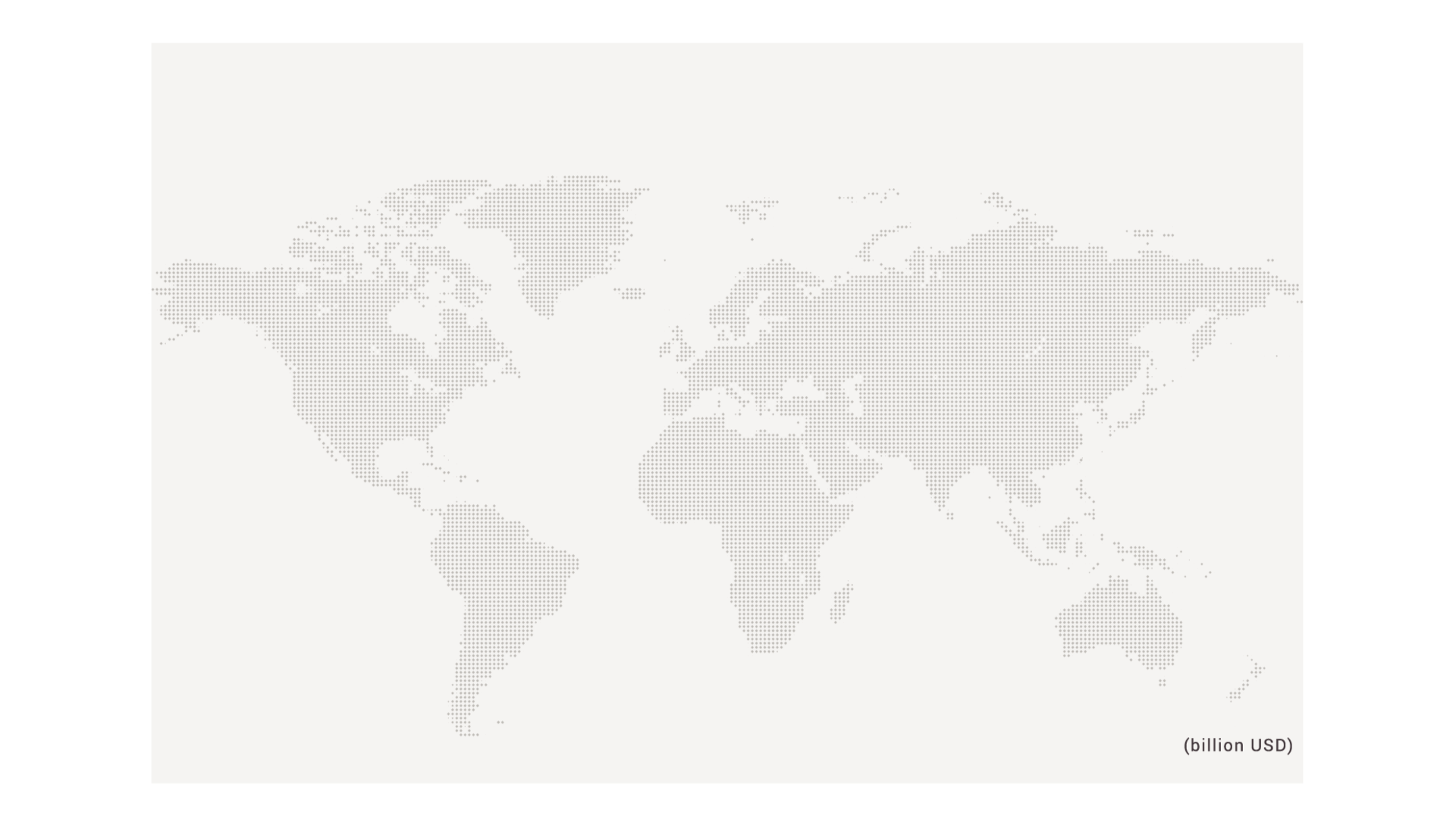
Supply Chain Risk
According to BNEF's Global Supply Chain Sustainability Risk Analysis, global brands linked with sustainability initiatives have a total purchase amount exceeding US$400 billion. Globally, Taiwan ranks third in the greatest value of suppliers linked to these brands, followed by the United States and Japan. The majority of Taiwan's manufacturers in supply chains are in the ICT and electronics, textile and clothing industries, which are affected by more than US$50 billion.
Taiwan's Capacity
Taiwan has established mature and complete recycling and management systems. 1,765 recycling companies convert industrial waste into over 230 types of recycled products (recycled plastics, recycled metals, recycled fuels, recycled solvents, etc.) which can be used as alternative raw materials or fuels for industries. In 2002, the recycling industry generated circular production value of US$830 million, and quickly grew to US$2,479 million in 2020.

Taiwan's Cases
Companies in Taiwan set ambitious goals to reduce the use of resources and to replace virgin materials with recycled materials. There have been some remarkable, early-pioneering successes. Taiwanese companies cooperated with international organisations and brands to reprocess waste into high-end boutique products, such as PET cycle, marine litter upgradation, waste rubber reuse, and urban mining precious metals.
Matching Mechanism
The Industrial Development Bureau (IDB) of the Ministry of Economic Affairs (MOEA) converted and upgraded Taiwan’s waste declaration database into the Industrial Information Platform of Circular Economy to promote industrial symbiosis and recycling of materials. Since 2020, IDB has focused on improving the Brand Supply Chain Matching Mechanism. The goal is to create successful partnerships between global brands and domestic suppliers through efficient communication, bridging cultures and language barriers and building trust.

4-Phase Process
Phase 1 - Investigating Brand Procurement Requirements: the IDB team and the brands establish a list of prioritized items based on the brands’ needs. Phase 2 - Searching for Supply Chain Partners: the IDB team looks for potential suppliers using the intelligent database and inspects their capacity and quality. Phase 3 - Matching Supply and Demand: the IDB team organises matching meetings. Phase 4 - Continuous Cooperation: the IDB team acts as a neutral third party and provides consultations on recycling regulations, information of green upgrades, applications for governmental subsidies, and more.
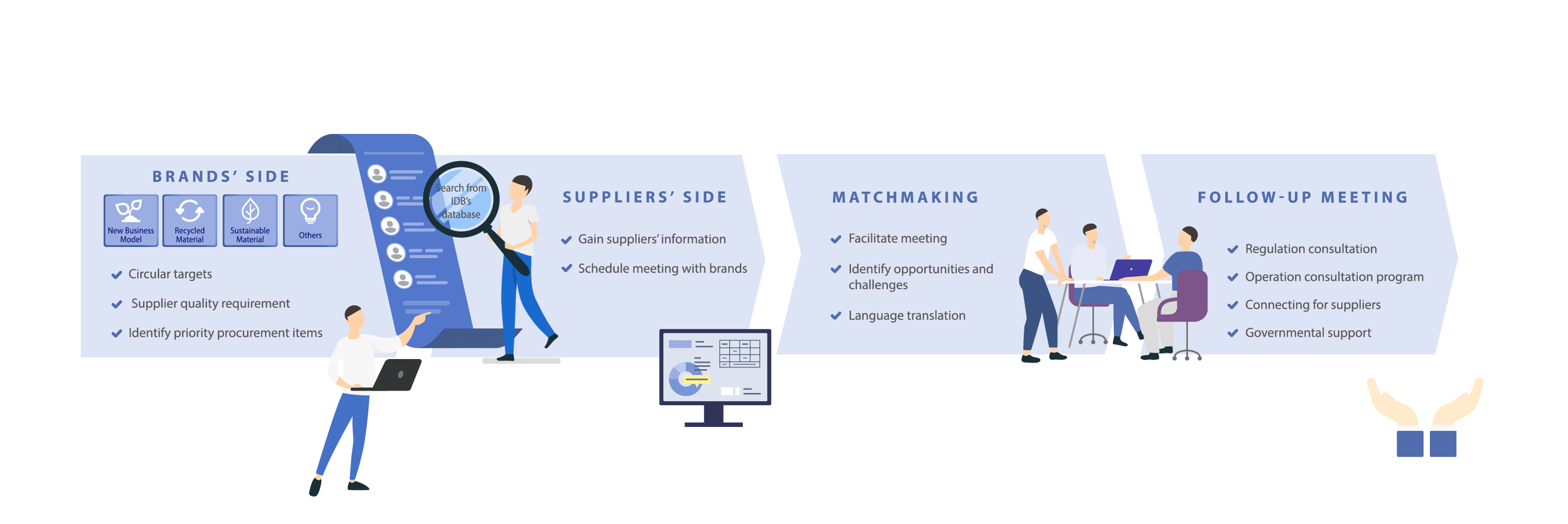
Industrial Information Platform
In order to facilitate the management and grasp the flow of various types of industrial waste, the Taiwanese government has set up the world's only real-time online reporting system. IDB uses technology and big data analysis to expedite the evaluation of circular materials and to help manufacturers quickly find suitable recycled materials. This analysis is then given to the Industrial Information Platform of Circular Economy as a tool to promote industrial symbiosis and renewable materials.
